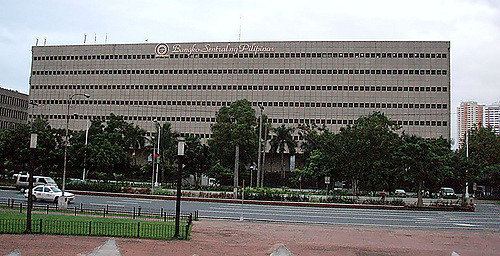Business and Economy
BSP expects ’18 inflation to hover around 4%

“The higher inflation in 2018, due largely to the immediate impact of the TRAIN Law, is seen to be temporary,” he said. (Photo by Jun Acullador/Flickr)
MANILA— The Bangko Sentral ng Pilipinas (BSP) considers as temporary the elevated domestic inflation rate this 2018, which is expected to “be around the high-end” of the government’s 2-4 percent target range for 2017-2019.
In a statement posted on the central bank’s Facebook page Tuesday night, BSP Governor Nestor A. Espenilla Jr. said monetary officials expected inflation “to be around the high-end of the National Government’s target rate of 3.0 percent ± 1.0 percentage points in 2018 before settling above the midpoint of the target range in 2019.”
“The higher inflation in 2018, due largely to the immediate impact of the TRAIN Law, is seen to be temporary,” he said.
The Philippine Statistics Authority (PSA) on Tuesday reported that rate of price increases registered a faster rate of four percent in the first month this year, up from the 3.3 percent in December 2017 and the 2.7 percent in January 2017.
Core inflation, which excludes volatile food and oil, registered at 3.
9 percent, faster than the three percent last December and 2.5 percent in January last year.
PSA traced this development primarily to faster inflation rate of the heavily-weighted food and non-alcoholic beverages to 4.5 percent from the previous month’s 3.
5 percent and the double-digit rate of the alcoholic beverages and tobacco index to 12.3 percent from 6.4 percent last December.
The first package of the Tax Reform for Acceleration and Inclusion (TRAIN ), which took effect January 1 this year, gave workers’ first PHP250,000 annual income a tax-free rate but hiked excise taxes on fuel and sugar-sweetened beverages.
Some analysts also attribute the faster inflation rate last January to the impact of the tax reform.
Amid the expected high inflation rate this year, Espenilla said, “Potential expansion of the economy’s productive capacity due to infrastructure spending would temper prices pressures in the long run.”
He cited that the planned one-year subsidies for the lower 50 percent of the society and the transport sector, which were targeted to help the poor cope with the increase of some commodity prices as a result of the tax reform, “could help mitigate the reduction in purchasing power of low-income households, and may help prevent further price increases.”
“Nevertheless, the BSP during its 8 February 2018 monetary policy meeting will evaluate carefully potential elevated risks to the inflation outlook, such as those coming from second-round effects of TRAIN and higher energy prices, to ensure that inflation expectations are well-anchored and remain consistent with the inflation target,” he added.





















